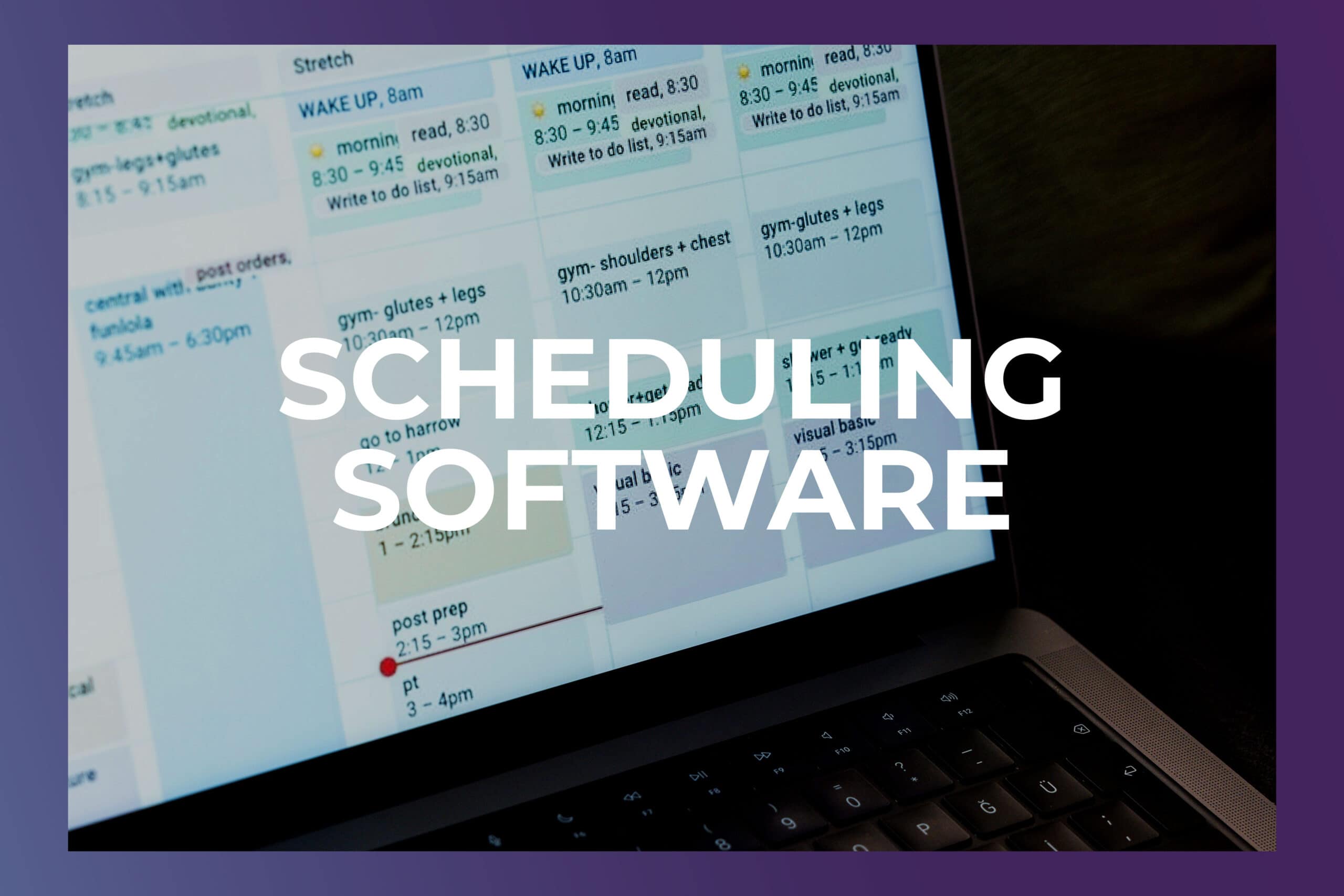20 Feb

What is scheduling software?
In today’s fast-paced world, where time is of the essence, businesses and individuals alike are constantly seeking ways to streamline their operations and manage their time more effectively. Scheduling software has emerged as a powerful solution to address these needs, offering a range of benefits that go beyond simple calendar management.
Here are just a few of the industries where scheduling software has become an essential part of daily business and operations:
- Schools: For class registration, parent-teacher conferences, back-to-school nights, professional development days, and more.
- Public Health: From routine checkups to public vaccination campaigns and informational nights for preventative healthcare.
- Professional Services: Photographers, beauticians, dentists, salons – scheduling software has replaced the receptionist’s busy line.
- Trade shows and Conferences: Booking time at vendor booths, scheduling meetings, and much more.
But there are many types of scheduling tools, and solutions exist at all levels of functionality and price points. Let’s explore a little more about what scheduling software is, and how you can decide what might be right for your needs.
What are scheduling tools?
Scheduling software is a digital tool designed to help individuals and organizations plan, organize, and manage their time efficiently. It goes beyond the traditional calendar by incorporating advanced functionalities that simplify the process of creating, editing, and sharing schedules. This software can be used for a variety of purposes, from coordinating team activities and managing appointments to optimizing project timelines and resource allocation.
Key features of the best scheduling software
Calendar Management: The core feature of scheduling platforms is its ability to create and manage calendars. Users can schedule events, appointments, and tasks, and set reminders to ensure they stay on top of their commitments.
Automated Scheduling: Advanced scheduling tools often come with automated features that can analyze various factors, such as availability, preferences, and dependencies, to suggest optimal scheduling options. This can save time and reduce the likelihood of scheduling conflicts.
Collaboration and Communication: Many scheduling tools are designed to facilitate collaboration among team members. Users can share schedules, invite others to events, and communicate within the platform, fostering seamless teamwork.
Resource Allocation: For businesses managing multiple projects or teams, scheduling software allows for efficient allocation of resources. This includes assigning tasks to specific individuals, tracking progress, and ensuring that resources are used optimally.
Reporting and Analytics: Appointment scheduling tools often provide reporting and analytics features, enabling users to gain insights into their time management habits, project timelines, and team productivity. This data can be valuable for making informed decisions and optimizing workflows.
Adam Hausman co-founded RSVPify in 2013 and has been passionate about event tech and ticketing software ever since. Also founder of Greenlight Growth Marketing, he holds degrees from Indiana University (BA English/Psychology 2008) and the University of Illinois-Chicago (M.Ed. Secondary Education 2012). He lives in Maine with his wife, 2 kids, and 2 annoying cats.










Adam Hausman